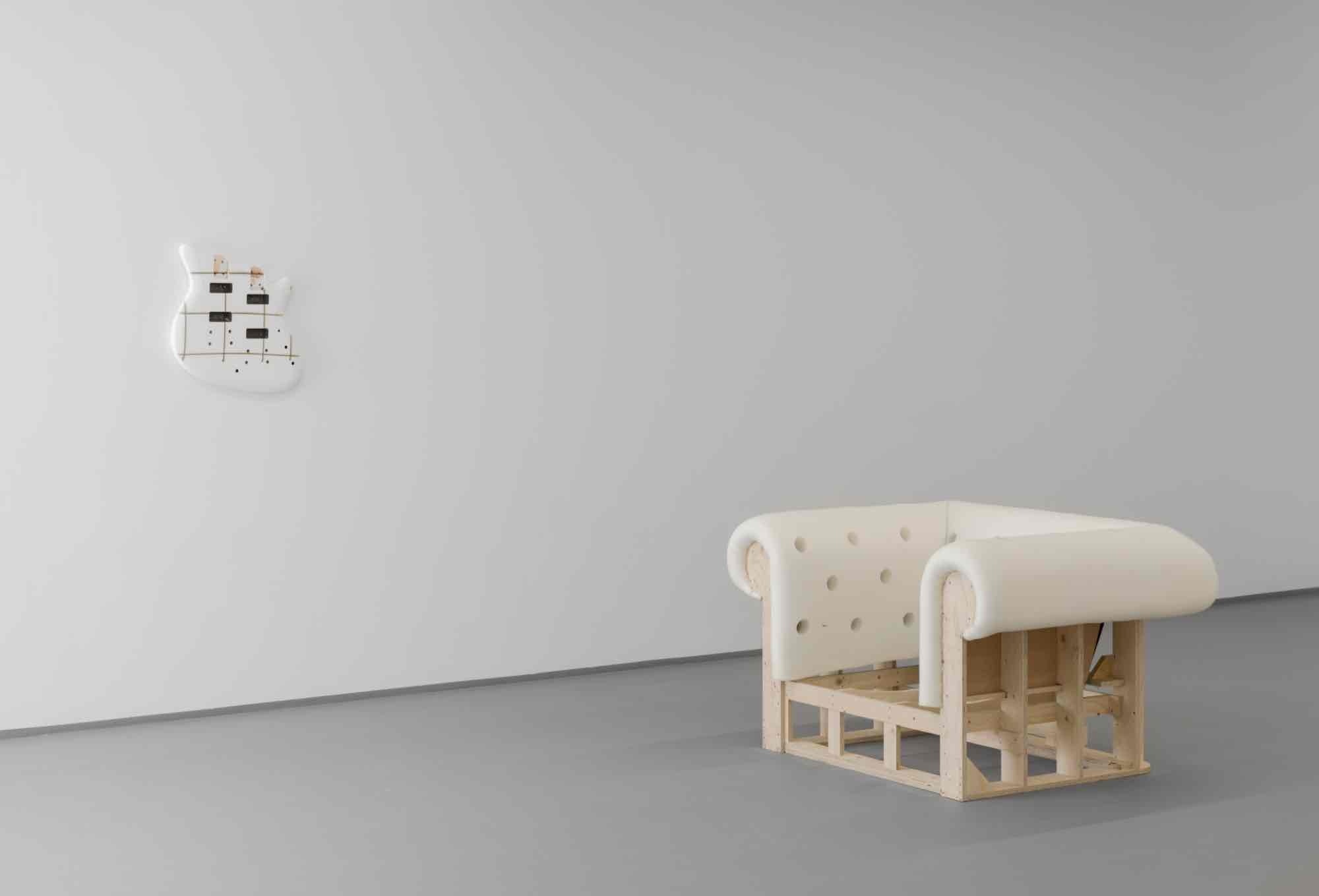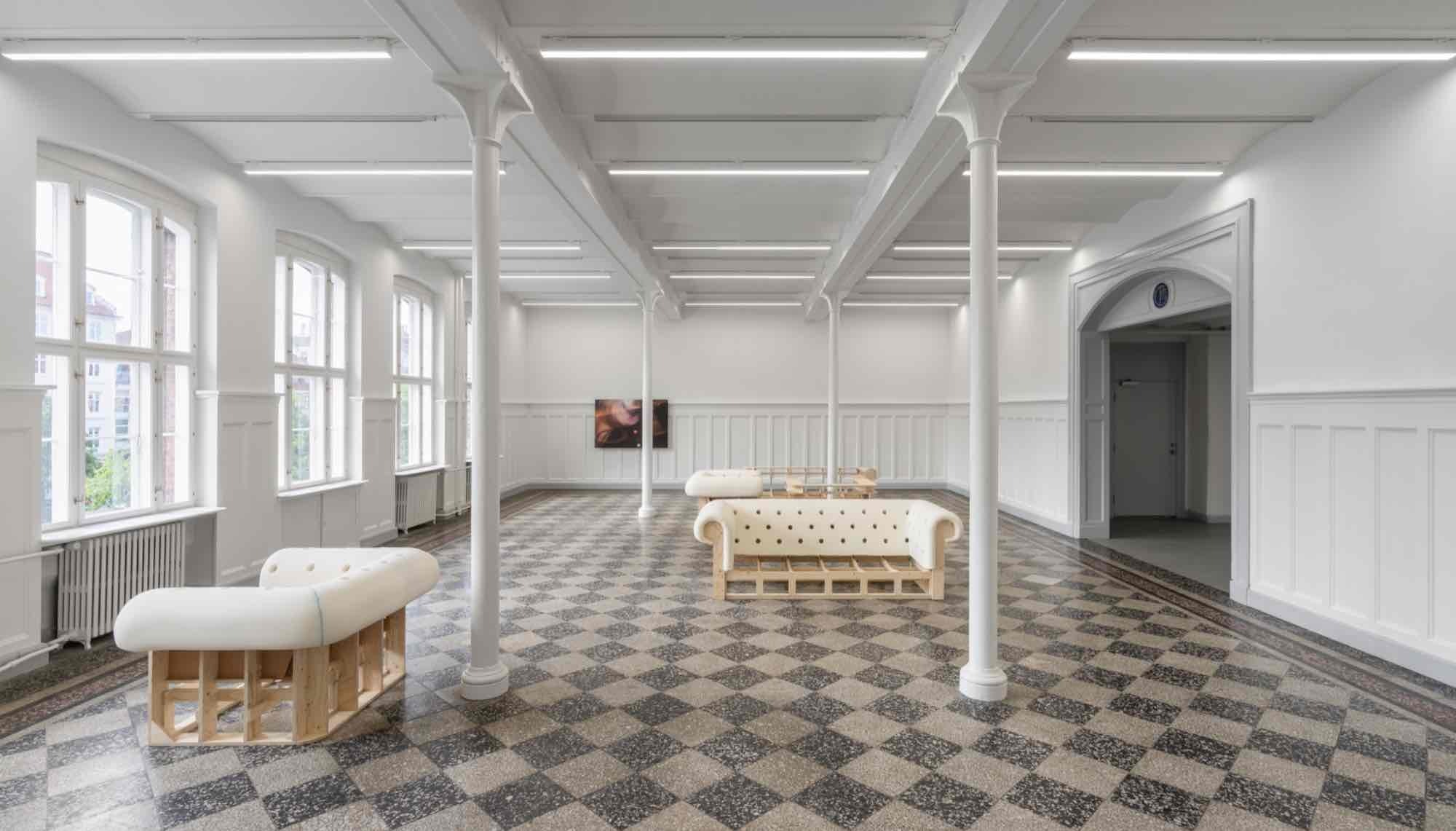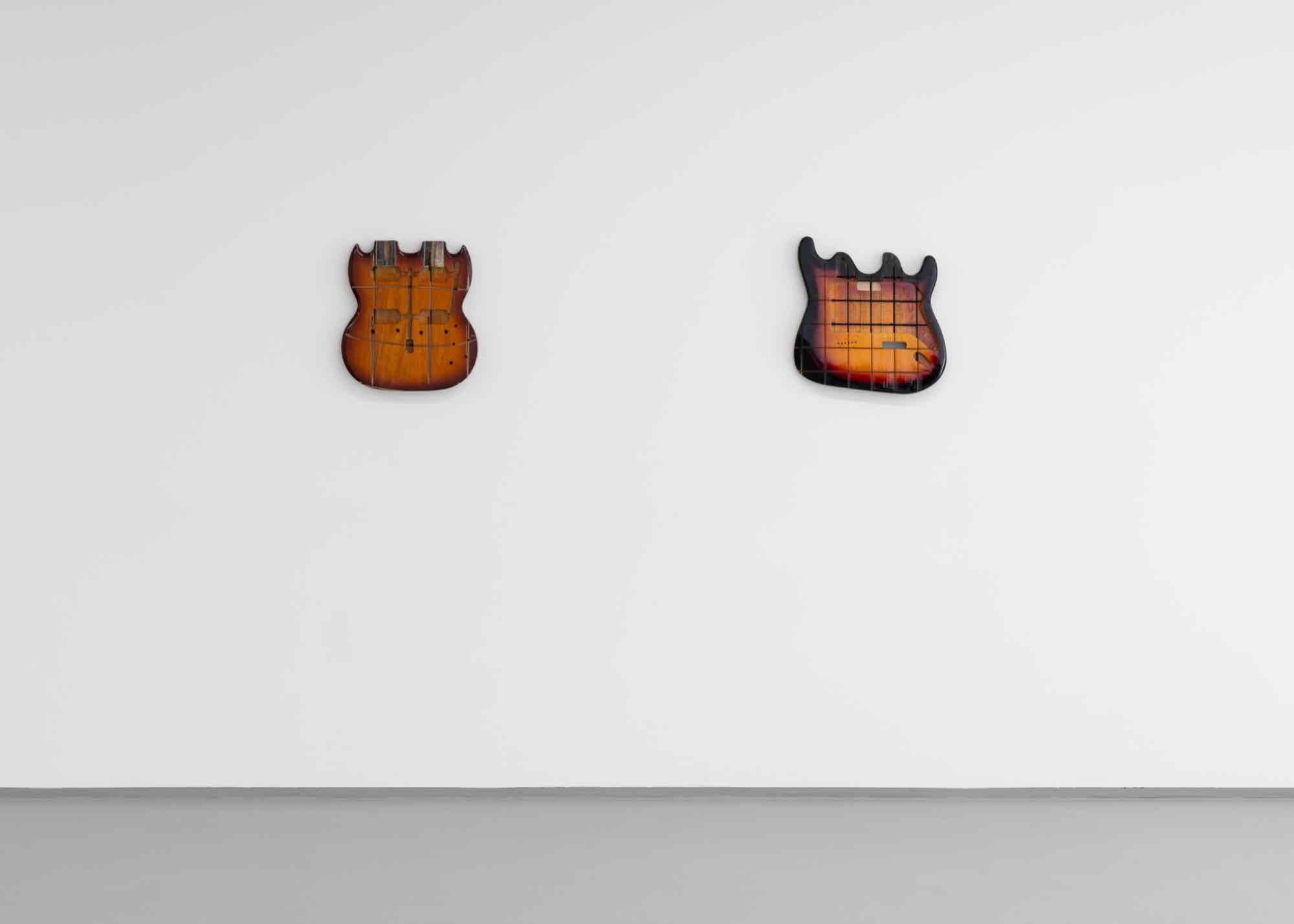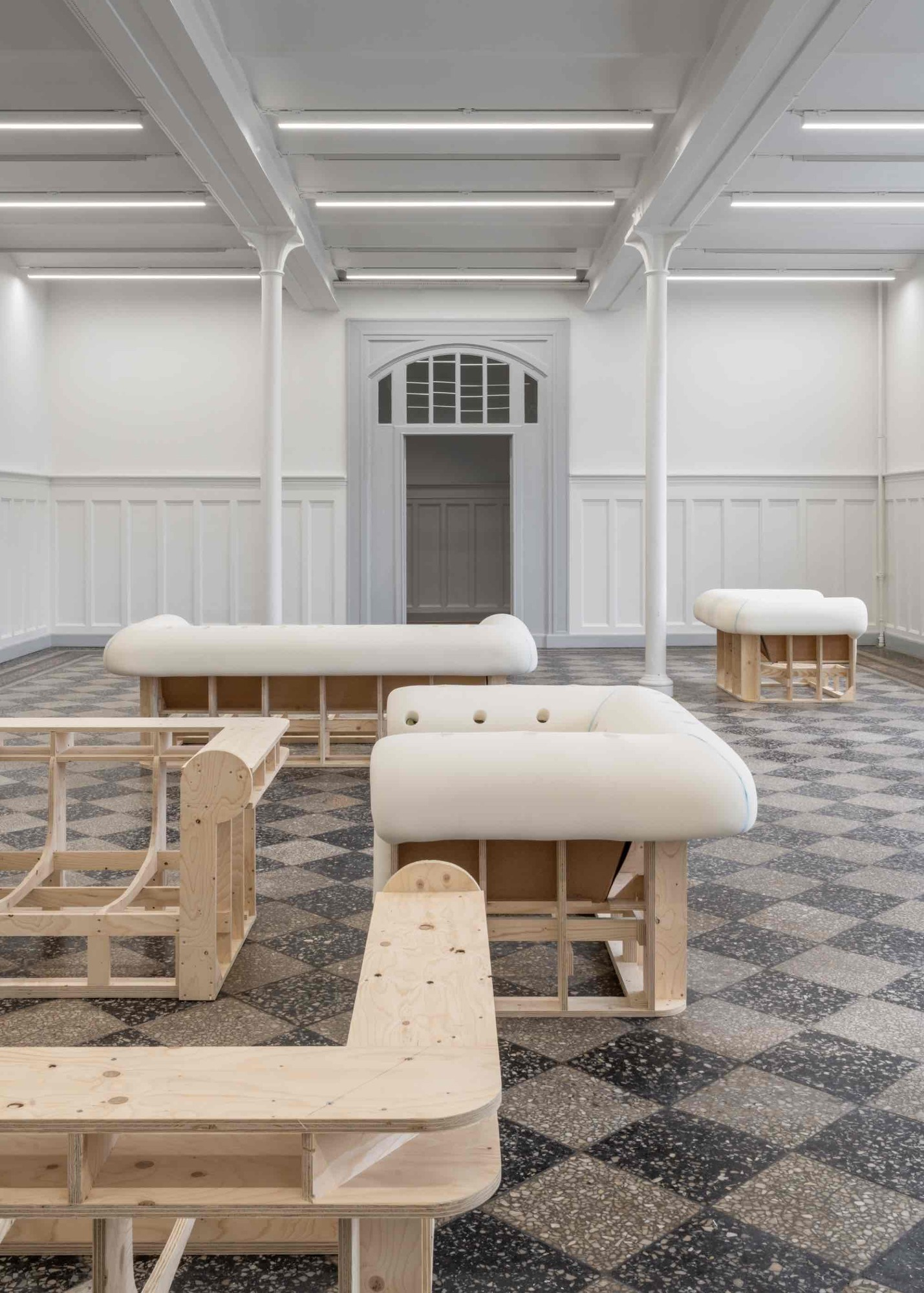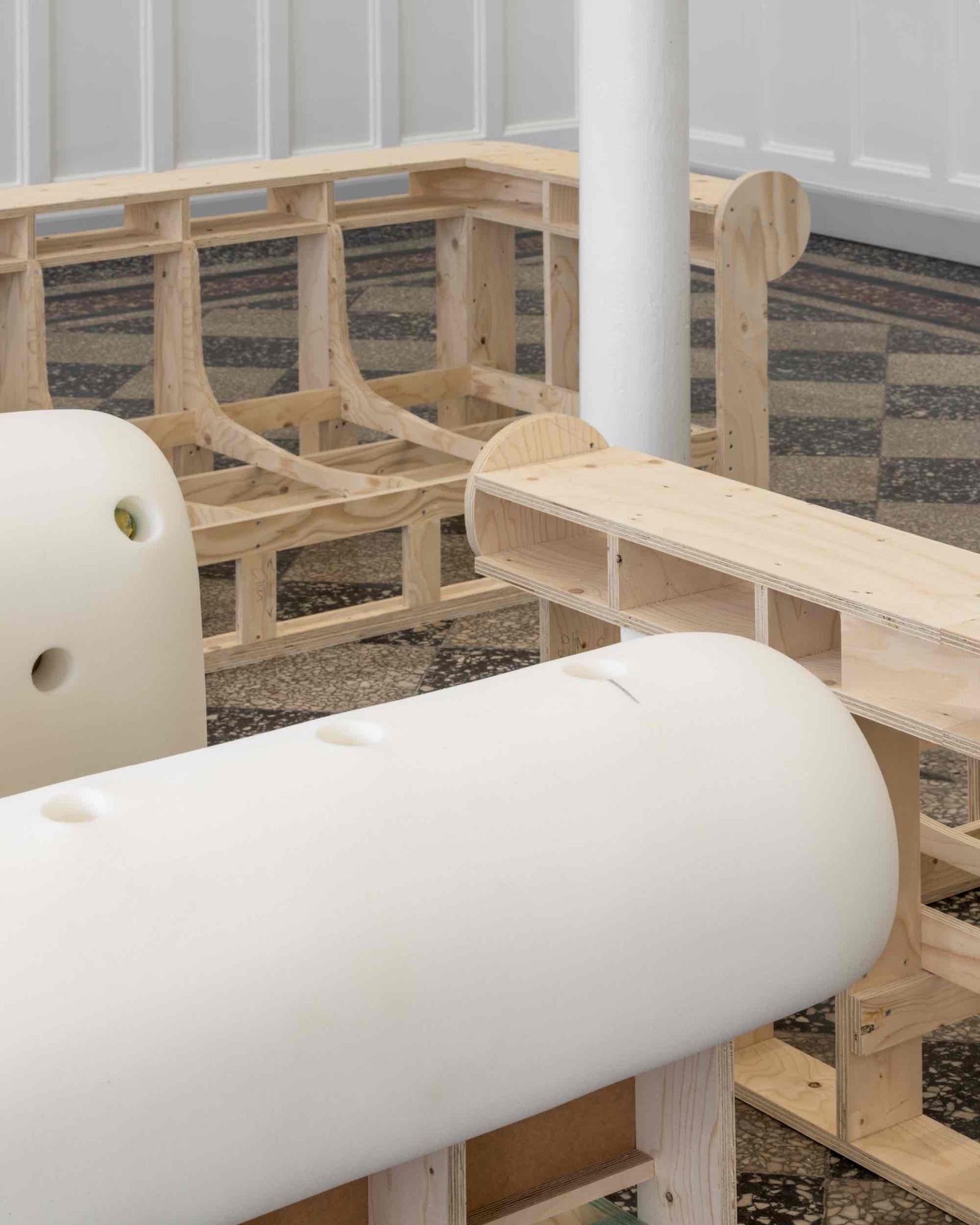Asta Lynge
22
08 Jun - 04 Aug 2024
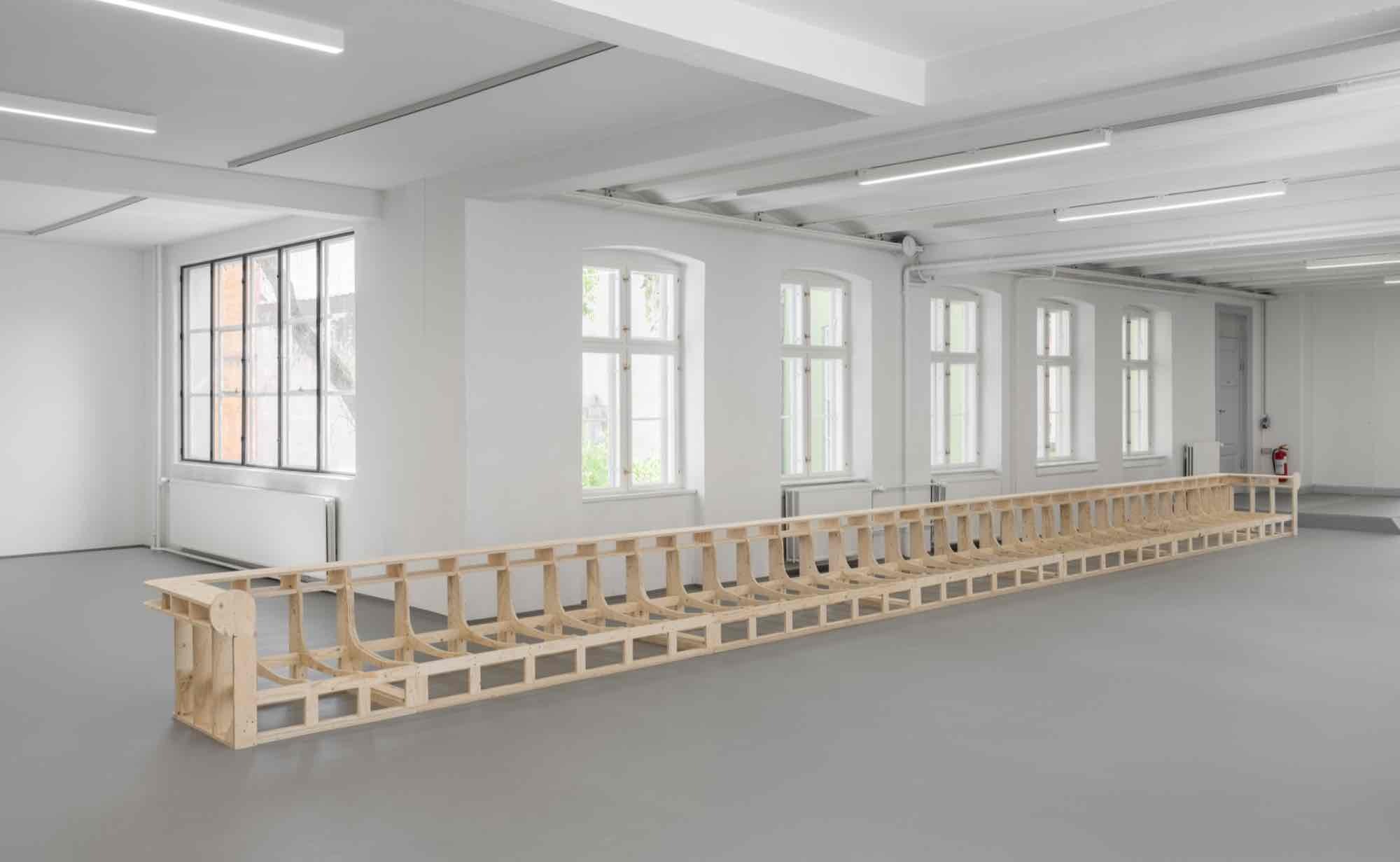
Asta Lynge, Audience. 22, O—Overgaden, 2024. Plywood. 92 x 1182 x 70,2 cm. Installation photo by David Stjernholm
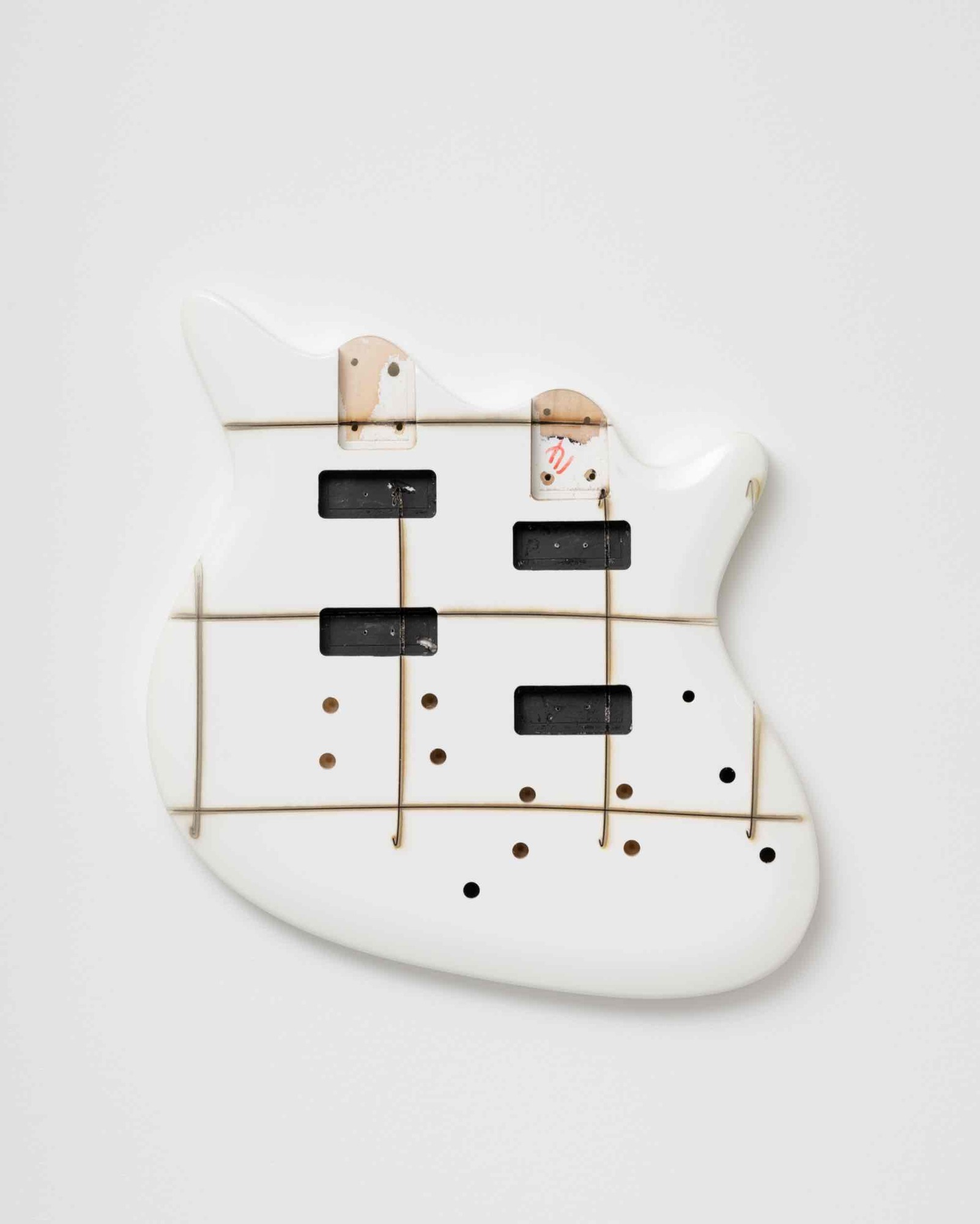
Asta Lynge, 00010. 22, O—Overgaden, 2024. Double-neck guitar with laser engraving. 49 x 52cm. Installation photo by David Stjernholm
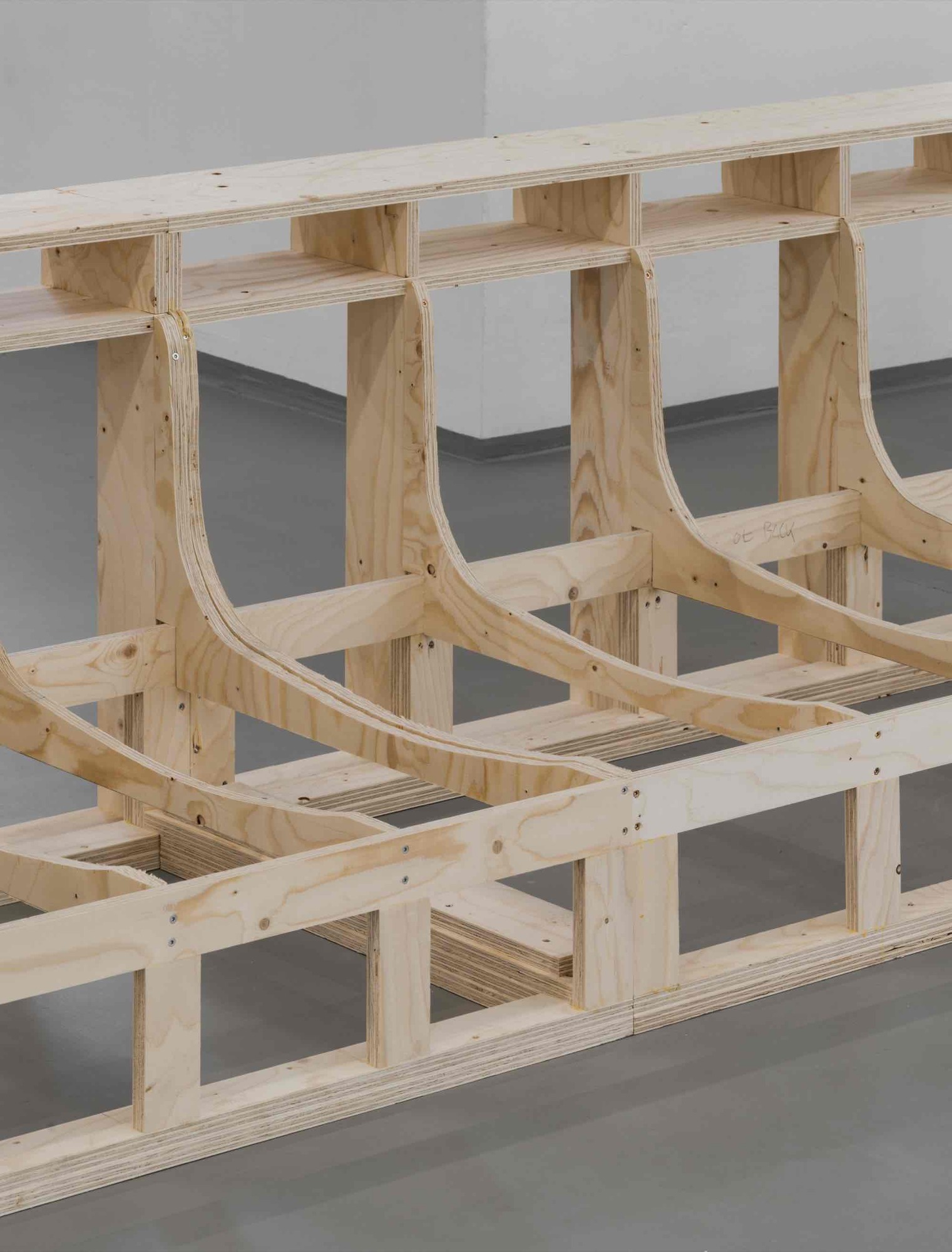
Asta Lynge, Audience (detail). 22, O—Overgaden, 2024. Plywood. 92 x 1182 x 70,2 cm. Installation photo by David Stjernholm
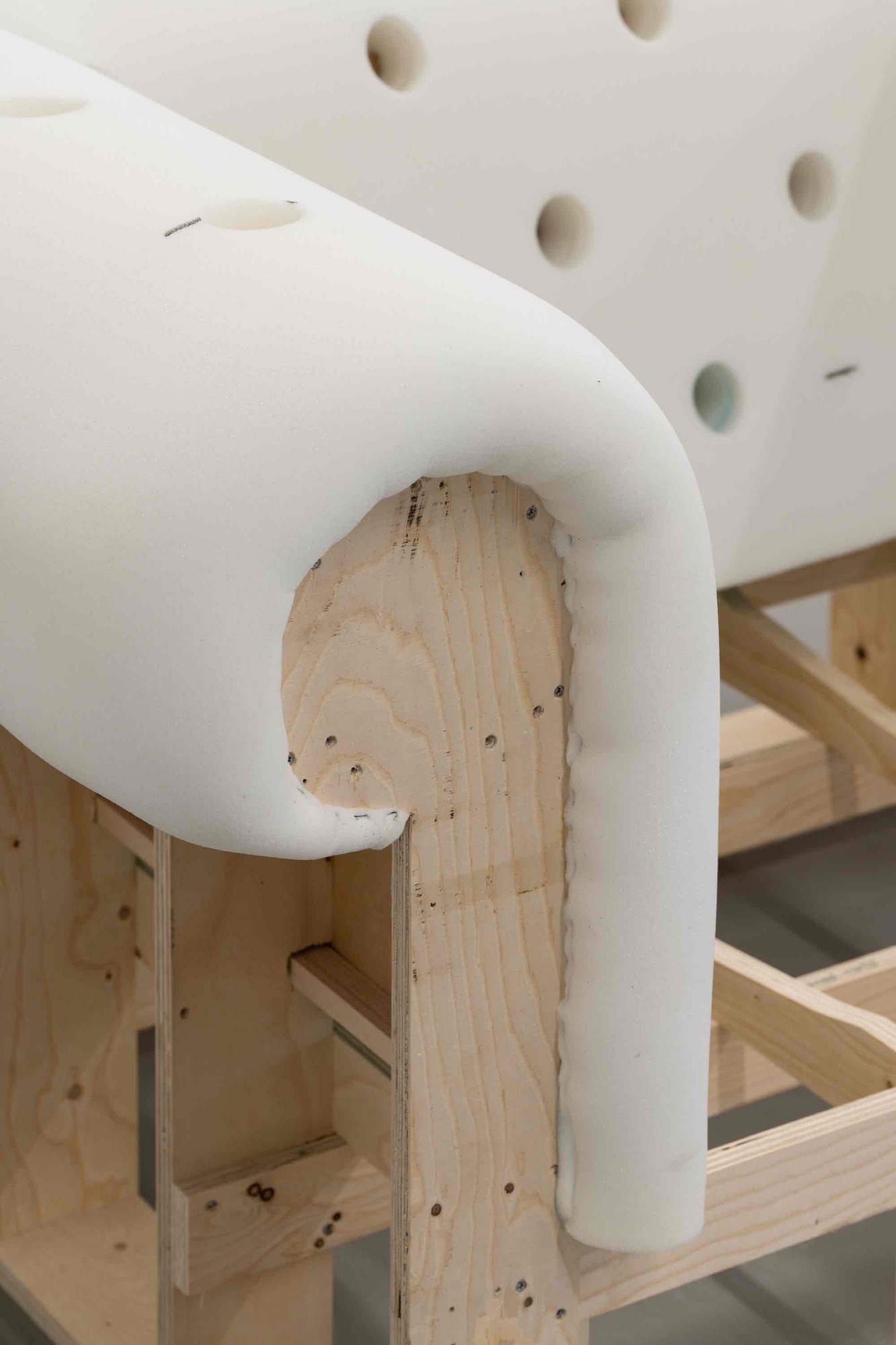
Asta Lynge, Audience. 22, O—Overgaden, 2024. Plywood. 102,5 x 100 x 77 cm. Installation photo by David Stjernholm
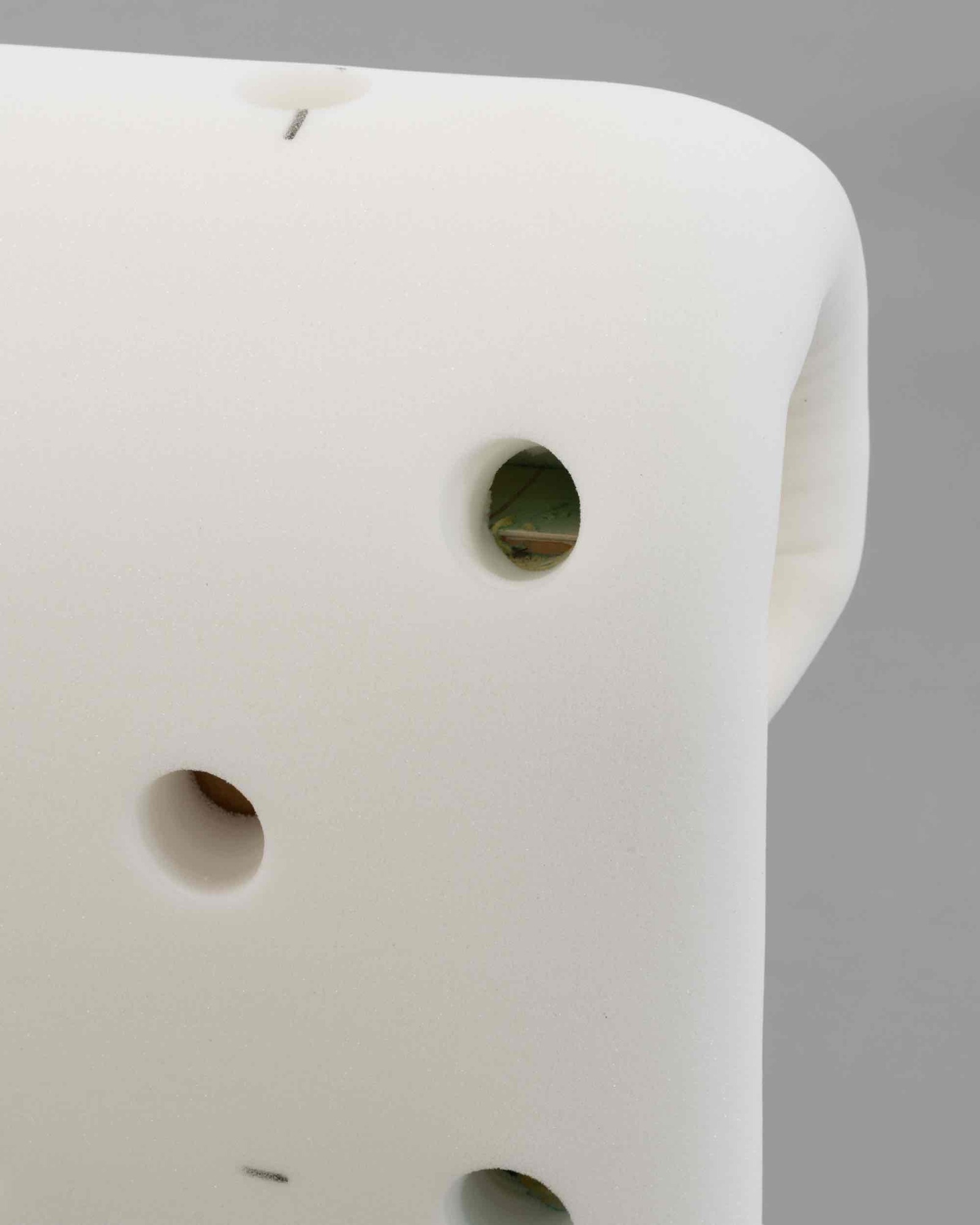
Asta Lynge, Audience. 22, O—Overgaden, 2024. Plywood. 102,5 x 100 x 77 cm. Installation photo by David Stjernholm
In her practice, Danish artist Asta Lynge (b. 1988) investigates the underlying power and infrastructures of contemporary society.
For her first major solo exhibition in Denmark, Lynge has developed a series of new works under the title 22, which refers to the exact number of bones that make up a human skull—and thus the bodily structure that surrounds a thinking or dreaming head.
Similarly to the title, Lynge’s exhibition reveals the skeleton, frame, or frameworks behind easily recognizable pop-cultural objects. Two sculptural series each peek behind the façade of well-known “instruments” or “tools” for comfort and enter- tainment: the sofa and the guitar. Skeletal plywood cut-outs comprise the series Audience, which exposes the structure behind what is perhaps Britain’s most iconic piece of lounge furniture: the Chesterfield sofa. Among other elements, an abnormal or surreal 17-seater version of the frame is displayed—an image of the old empire’s colonialist comfort and, not least, its boundless growth. In another series, Lynge strips bare so-called “double-neck guitars,” dissecting the classic emblem of maxi- mized stadium rock’s showmanship. By removing all strings and electric parts from the guitar and decapitating its not only one but 2 phallic necks, Lynge castrates the multi-stringed symbol of inflated performance and doubled potency. Suggesting an ecology of “anti-production,” which does not add, but rather removes embellishment, Lynge questions what is behind the leather upholstery or the accelerated rock instrument—whether this adheres to the powerful convenience of the sofa or the sweaty guitarist’s stage performance.
As part of the exhibition, Lynge has redirected the path to O—Overgaden’s upper floor from the building’s internal staircase to the more majestic main stairs and relocated one of its drywalls. Thus, the artist not only strips and modifies well-known cultural objects, but also hijacks the very construction or choreography of the cultural institution. Behind the rearranged “ready-made” drywall hangs a description of a dream the artist had. In the dream, she eats 1.5 electric toothbrushes. Not unlike how Lynge chews through the electric guitar or the Chesterfield sofa, this points to the invisible violence or subconscious power relations that are potentially embedded, even, in a popular piece of furniture or musical instrument.
For her first major solo exhibition in Denmark, Lynge has developed a series of new works under the title 22, which refers to the exact number of bones that make up a human skull—and thus the bodily structure that surrounds a thinking or dreaming head.
Similarly to the title, Lynge’s exhibition reveals the skeleton, frame, or frameworks behind easily recognizable pop-cultural objects. Two sculptural series each peek behind the façade of well-known “instruments” or “tools” for comfort and enter- tainment: the sofa and the guitar. Skeletal plywood cut-outs comprise the series Audience, which exposes the structure behind what is perhaps Britain’s most iconic piece of lounge furniture: the Chesterfield sofa. Among other elements, an abnormal or surreal 17-seater version of the frame is displayed—an image of the old empire’s colonialist comfort and, not least, its boundless growth. In another series, Lynge strips bare so-called “double-neck guitars,” dissecting the classic emblem of maxi- mized stadium rock’s showmanship. By removing all strings and electric parts from the guitar and decapitating its not only one but 2 phallic necks, Lynge castrates the multi-stringed symbol of inflated performance and doubled potency. Suggesting an ecology of “anti-production,” which does not add, but rather removes embellishment, Lynge questions what is behind the leather upholstery or the accelerated rock instrument—whether this adheres to the powerful convenience of the sofa or the sweaty guitarist’s stage performance.
As part of the exhibition, Lynge has redirected the path to O—Overgaden’s upper floor from the building’s internal staircase to the more majestic main stairs and relocated one of its drywalls. Thus, the artist not only strips and modifies well-known cultural objects, but also hijacks the very construction or choreography of the cultural institution. Behind the rearranged “ready-made” drywall hangs a description of a dream the artist had. In the dream, she eats 1.5 electric toothbrushes. Not unlike how Lynge chews through the electric guitar or the Chesterfield sofa, this points to the invisible violence or subconscious power relations that are potentially embedded, even, in a popular piece of furniture or musical instrument.

